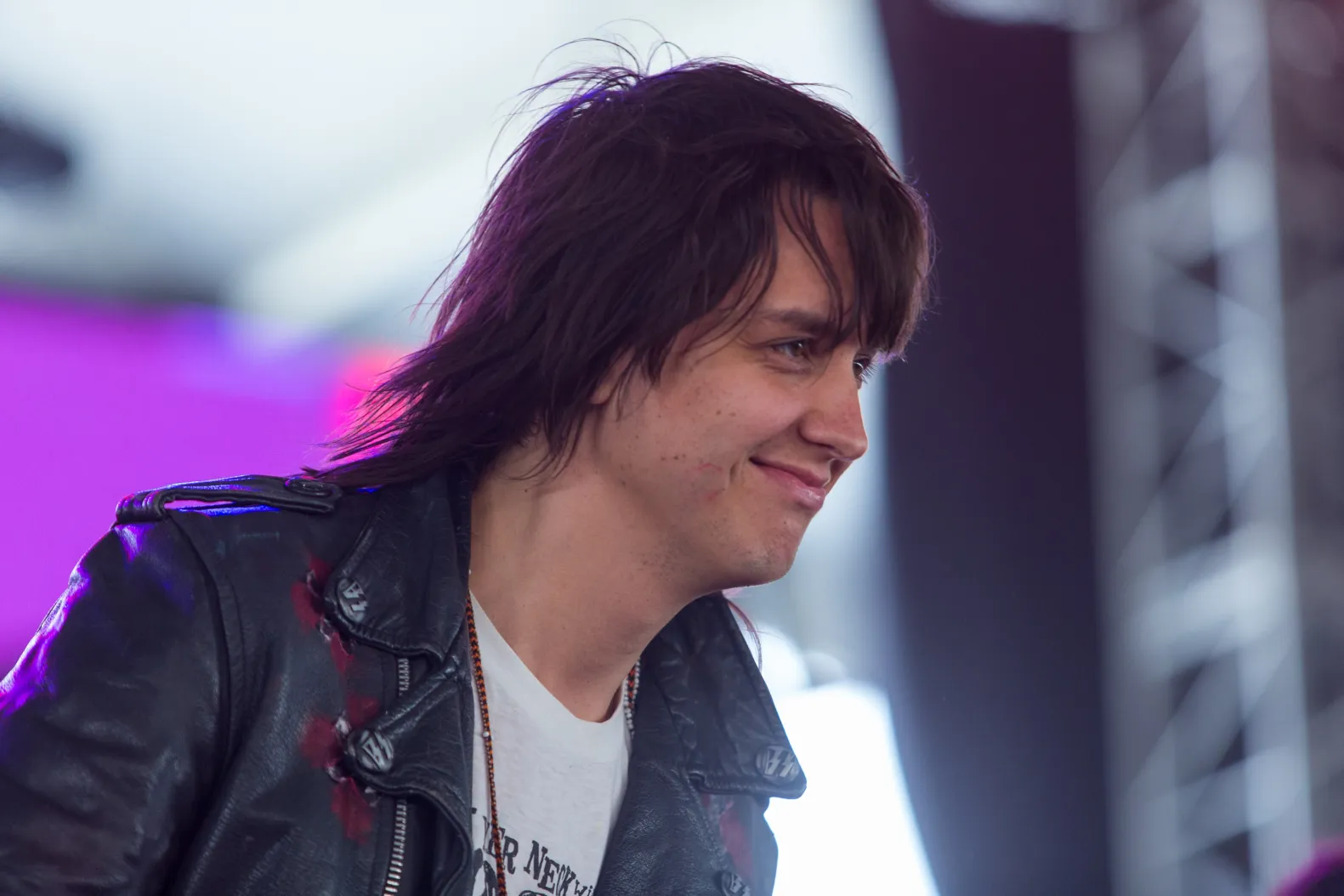When most people think of the greatest vocalists in music history, iconic names like Freddie Mercury or Mariah Carey usually come to mind. From the smooth tones of Adele to the powerful control of Aretha Franklin, these singers are often celebrated for their vocal prowess. However, one name that is frequently overlooked in these conversations is Julian Casablancas, the leather jacket-wearing, shaggy-haired frontman of The Strokes, who has quietly showcased his impressive vocal talent within the indie rock scene of the 2000s.
The Strokes emerged from New York City in the late 1990s, but it was during the 2000s post-punk revival that they truly defined their sound. Their success, marked by punchy riffs and memorable melodies, owes much to the collaborative efforts with producer Gordon Raphael. Raphael’s involvement began with their debut EP, The Modern Age, and continued with their iconic 2001 debut album, Is This It. However, it was during the production of their sophomore album, Room on Fire, that Raphael gained a profound appreciation for Casablancas’ vocal talent.
In a revealing conversation with Daniel Sarkissian, Raphael recalled a significant moment during the Room on Fire sessions: “One of the highlights was that Julian sat next to me in the studio, in the control room,” he shared. “He didn’t stand in the live room; he sat next to me in a chair. So I was just like shoulder to shoulder with this guy while he was singing every word on that album.” This unique setup allowed Raphael to experience Casablancas’ vocal abilities up close, and it left a lasting impression.
Raphael praised Julian Casablancas’ vocal talent, noting his remarkable control over tone and rhythm. He highlighted Casablancas’ ability to manipulate these elements at will, saying, “He is so in control of his rhythm that he can push, push, push, rushing ahead of the rhythm and then end up perfectly on the rhythm, and you don’t know why it gives you this excitement.” This mastery of rhythm is evident throughout Room on Fire, particularly on tracks like ‘Under Control,’ where Casablancas effortlessly takes his time, letting the words flow naturally against the instrumentation, and ‘The End Has No End,’ where he demonstrates his rhythmic precision while keeping his vocals understated.
Unlike many singers who are known for their flashy vocal techniques, Julian Casablancas uses his vocal talent to serve The Strokes’ overall sound. His vocals may not be loud or overtly showy, but they don’t need to be. Raphael noted, “He knows how to do these micro-subtleties with rhythm and tone that make him a jaw-dropping singer.” It’s this subtle brilliance that often goes unnoticed but is integral to the band’s success.
Julian Casablancas may not top the lists of the greatest vocalists alongside Franklin or Mercury, but his vocal talent is undeniable. For those who take a closer listen to The Strokes’ tracks, nestled between the sublime riffs and indie rock choruses, Casablancas’ vocal intricacies reveal a quiet mastery that is just as intriguing as any other element of the band’s sound.
